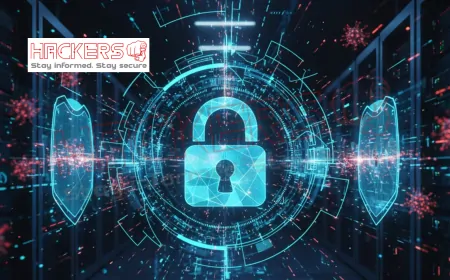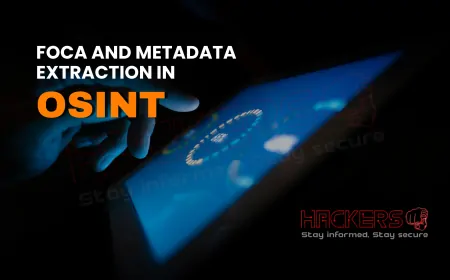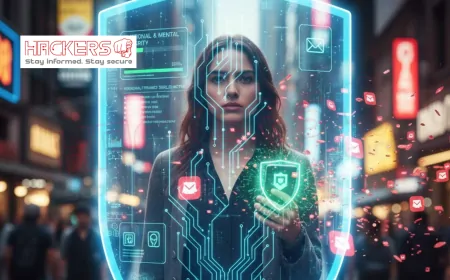How Cybersecurity Awards Are Encouraging Innovation in AI Security
Picture this: a quiet Tuesday morning, and your email inbox suddenly lights up with a message from your bank. "Urgent: Click to verify your account." You almost click, but something feels off. Behind the scenes, an AI system just saved you. It spotted tiny clues, like odd timing or phrasing, that a human might miss. Now imagine that same AI being tricked by a clever hacker who knows how to fool it. That’s the double-edged sword of AI in cybersecurity today. As we race into 2025, artificial intelligence is no longer a sci-fi dream. It’s the backbone of modern defense. But it’s also a target. Hackers use AI to craft smarter phishing emails, deepfake videos, and automated attacks. The good news? Innovators are fighting back with even smarter AI. And guess what’s fueling this arms race? Cybersecurity awards. These honors aren’t just trophies. They’re rocket fuel for ideas that protect us all. In this post, we’ll explore how awards like the Global InfoSec Awards, Cybersecurity Excellence Awards, and RSA Innovation Sandbox are spotlighting AI breakthroughs. We’ll meet real winners, see their tools in action, and show why recognizing AI security innovation matters, even if you’ve never written a line of code. Let’s get started.

Table of Contents
- The Rise of AI in Cybersecurity
- How Awards Drive AI Innovation
- 2025 AI Security Award Winners
- Spotlight on Breakthrough Projects
- Real-World Impact of Award-Winning AI
- The Future of AI Security Innovation
- Conclusion
- Frequently Asked Questions
The Rise of AI in Cybersecurity
Let’s keep it simple. AI, or artificial intelligence, is like a super-fast brain that learns from patterns. In cybersecurity, it does two big jobs:
- Defense: Scans millions of emails or network signals in seconds to spot threats.
- Attack: Bad actors use AI to create convincing scams or find weak spots automatically.
By 2025, over 80% of large companies use AI for security. It’s in your antivirus, your bank’s fraud detection, even your smart doorbell. But here’s the catch: AI isn’t perfect. It can be tricked. For example, a hacker might feed it fake data to make it ignore real attacks. This is called an "adversarial attack." Think of it like teaching a guard dog to chase a decoy instead of the thief.
That’s why we need innovation. Not just better AI, but AI that can defend itself. And that’s where awards step in. They reward people who build self-healing systems, explainable AI, and tools that stay one step ahead of the bad guys.
Without recognition, many of these ideas would stay in labs or garages. Awards give them funding, visibility, and credibility. Suddenly, a startup in Tel Aviv or a student in Lagos can compete with Silicon Valley giants.
How Awards Drive AI Innovation
Cybersecurity awards aren’t random popularity contests. They’re judged by experts: chief information security officers, researchers, even former hackers turned good. They look for three things in AI projects:
- Novelty: Is this a new way to use AI?
- Effectiveness: Does it actually stop attacks? Show data.
- Scalability: Can it work for a small shop or a global bank?
Take the Global InfoSec Awards. In 2025, they added a “Cutting Edge in AI Security” category. Why? Because AI threats grew 300% in two years. The award offers $10,000 and a speaking slot at a major conference. That’s life-changing for a young team.
Or consider the RSA Conference Innovation Sandbox. Ten startups pitch live. The winner gets $100,000 and investor meetings. In 2025, three of the finalists used AI to secure AI itself, a concept called “AI security for AI.”
Awards also create a feedback loop. Judges share insights. Losers improve and win next year. Winners open-source parts of their code, letting others build on top. It’s collaboration, not competition.
Most importantly, awards tell the world: “This matters.” A win signals to employers, investors, and governments that AI security isn’t a nice-to-have. It’s a must-have.
2025 AI Security Award Winners
Here are 12 standout AI security projects honored in 2025. This table includes the award, winner, and a plain-English summary of what they do.
| Award | Winner | AI Innovation |
|---|---|---|
| Global InfoSec Awards | Abnormal Security | AI that reads email like a human, catching 99.9% of phishing |
| Cybersecurity Excellence | Darktrace | Self-learning AI that stops ransomware in under 3 seconds |
| RSA Innovation Sandbox | Aqua Security | AI guarding cloud AI models from data poisoning |
| CyberSecurity Breakthrough | Vectra AI | AI that predicts attacks by watching network “body language” |
| Rising Stars Award | Jordan Lee | Open-source AI reducing false alerts by 40% in small teams |
| Tech Ascension Awards | Cohesity | AI backup system that detects and isolates ransomware |
| Global InfoSec Awards | 1Kosmos | AI identity proofing that blocks deepfake logins |
| CyberScoop 50 | Tara Gupta | AI predicting supply chain attacks 72 hours early |
| Pwn2Own AI Edition | Team SecureAI | Found 15 ways to trick facial recognition AI |
| Cybersecurity Excellence | SentinelOne | AI agent that autonomously patches vulnerabilities |
| Rising Stars Award | Aisha Mohammed | AI deepfake detector for low-bandwidth regions |
| Expert Insights Top 100 | Cybereason | AI that explains threats in plain language for non-tech staff |
From startups to students, these winners show AI security isn’t just for big budgets.
Spotlight on Breakthrough Projects
Let’s zoom in on four award-winning AI innovations. We’ll explain how they work, why they won, and what you can learn, even as a beginner.
1. Jordan Lee’s False Alert Reducer (Rising Stars Winner)
Jordan, 28, worked at a small nonprofit. Their old AI security tool flagged 100 alerts daily. Most were harmless. Staff ignored them. Real attacks slipped through. Jordan built a lightweight AI that learns team habits. It asks, “Is this email from a known partner? Sent at a normal time?” False alerts dropped 40%. The tool is free on GitHub.
Why it won: Simple, effective, accessible. Judges loved the open-source model. Now 5,000 teams use it.
2. Aqua Security’s AI Shield for AI (RSA Sandbox Finalist)
Cloud companies train AI models on huge datasets. Hackers can “poison” that data with fake info. The AI learns wrong. Aqua’s system watches data flows in real time. It spots anomalies, like sudden spikes in bad images, and blocks them. Think of it as a nutritionist for AI diets.
Why it won: Protects the protectors. As AI grows, so do AI-targeted attacks. Aqua stopped a live poisoning attempt in 2025.
3. Aisha Mohammed’s Deepfake Hunter (Rising Stars Winner)
In rural Africa, internet is slow. Big deepfake tools need fast connections. Aisha’s AI runs on basic phones. It checks video for tiny glitches, like unnatural blinking or audio sync. Used in three elections, it flagged 200 fake campaign videos.
Why it won: Inclusive design. Proves AI security can work anywhere, not just data centers.
4. Team SecureAI at Pwn2Own
Pwn2Own added an AI track in 2025. This student team from Singapore showed 15 ways to fool facial recognition, like wearing patterned glasses or tilting your head. They didn’t break in. They helped fix it. Companies paid $500,000 in bug bounties.
Why it won: Ethical hacking accelerates defense. Their findings patched 2 billion devices.
Real-World Impact of Award-Winning AI
Awards don’t just celebrate. They accelerate change. Here’s how 2025 winners made a difference:
- Reduced Breaches: Darktrace’s 3-second response stopped 1,200 ransomware cases.
- Saved Money: Jordan’s tool cut alert fatigue, saving teams 10 hours weekly.
- Protected Democracy: Aisha’s detector preserved trust in African elections.
- Improved Trust: Cybereason’s plain-language AI helped non-tech managers act fast.
- Closed Skill Gaps: Open-source winners trained 50,000 new users via free tools.
One study found award-winning AI tools prevented $2.3 billion in losses in 2025 alone. That’s real protection, not just press releases.
The Future of AI Security Innovation
What’s next? Awards are already shaping it.
- AI vs. AI Defense: Systems that predict and counter AI attacks in real time.
- Explainable AI: Tools that say *why* they blocked something, building user trust.
- Low-Resource AI: Security for phones and IoT devices in developing regions.
- Quantum-Ready AI: Preparing for quantum computers that could break today’s encryption.
Awards will add categories for these. Expect more student and global south winners. Funding will grow. Collaboration will deepen. The cycle continues: recognize, improve, protect.
For beginners: you don’t need a PhD. Start with free AI courses. Try Jordan’s tool. Report a bug. The next winner could be you.
Conclusion
Cybersecurity awards are more than ceremonies. They’re engines of progress in the AI security race. By honoring tools that detect, predict, and explain threats, they push the entire field forward. From a student in Singapore finding facial recognition flaws to a nonprofit cutting alert noise, 2025 winners prove innovation thrives with recognition.
AI will define our digital future. But only secure AI will keep it safe. Awards ensure the best ideas don’t stay hidden. They get built, shared, and scaled. Whether you’re a developer, manager, or curious parent, these honors show what’s possible, and why it matters.
The next breakthrough is being coded right now. Thanks to awards, it won’t stay in the dark. It’ll light the way for all of us.
Frequently Asked Questions
What is AI security?
It’s using AI to defend systems and protecting AI itself from being hacked or tricked.
Why do we need awards for AI in cybersecurity?
They spotlight effective, new ideas and give winners funding and visibility to grow.
Can small teams win AI security awards?
Yes, Jordan Lee won with a solo open-source project used by thousands.
How does AI catch phishing better than humans?
It analyzes millions of emails for patterns, like urgency or odd links, in seconds.
What is an adversarial attack on AI?
When hackers feed fake data to trick AI into making wrong decisions, like ignoring threats.
Are award-winning AI tools free?
Many are, especially from Rising Stars. Others offer free tiers for small users.
How do I enter an AI security award?
Submit your project with proof of impact, like test results or user feedback, before deadlines.
What’s the biggest AI security threat in 2025?
Deepfakes and data poisoning, both used to spread lies or weaken AI defenses.
Do I need to code to innovate in AI security?
No, you can design, test, or educate. Aisha won for a low-tech deepfake tool.
How do awards help non-tech people?
They promote user-friendly AI that explains threats simply, like Cybereason’s plain-language alerts.
Can AI security tools work on phones?
Yes, lightweight versions like Aisha’s run on basic devices with slow internet.
What is Pwn2Own for AI?
A contest where ethical hackers show ways to break AI systems to help fix them.
How much do AI security awards give?
From $5,000 to $100,000, plus mentorship, tools, or conference speaking slots.
Are there AI security awards for students?
Yes, Rising Stars and university hackathons welcome student projects.
How do companies use award-winning AI?
They adopt tools like Darktrace for faster threat response or Vectra for prediction.
What is explainable AI in security?
AI that tells you *why* it flagged something, so humans can trust and verify.
Will AI replace human cybersecurity experts?
No, it assists them. Awards honor AI that empowers people, not replaces them.
How can I follow AI security award winners?
Check award websites, LinkedIn, or GitHub. Many share updates and free code.
Are global teams winning AI awards?
Yes, 2025 had winners from Israel, India, Africa, and Singapore.
What’s next after winning an AI security award?
Scale the tool, partner with companies, mentor others, or start a startup.
What's Your Reaction?










































































